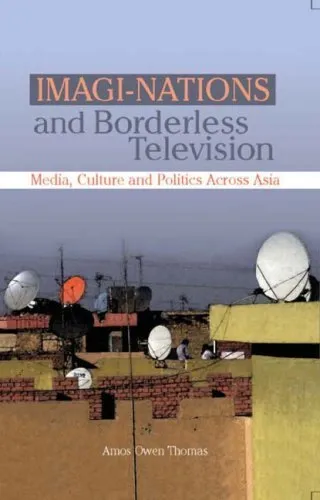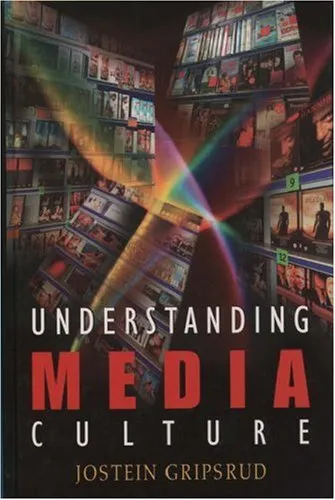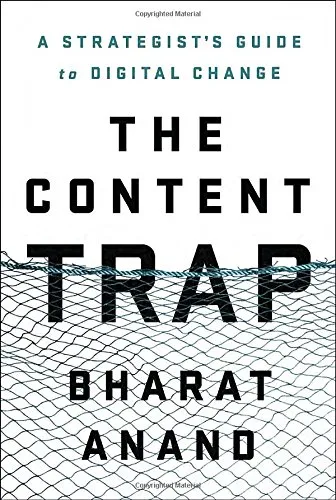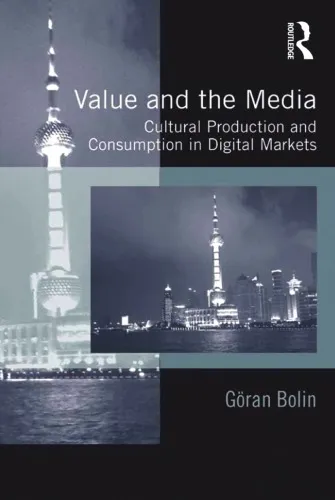Imagi-Nations and Borderless Television: Media, Culture and Politics Across Asia
4.5
Reviews from our users

You Can Ask your questions from this book's AI after Login
Each download or ask from book AI costs 2 points. To earn more free points, please visit the Points Guide Page and complete some valuable actions.Related Refrences:
`An outstanding book on a significant topic… I recommend this highly to interested readers' - Arvind Singhal, Professor and Presidential Research Scholar, Ohio University `Imagi-Nations and Borderless Television neatly captures the revolution that television in Asia has gone through over the last 15 years…. Important for anyone wishing to understand the future of Asian television' - Andre Nair, Chairman and CEO Asia Pacific, Mediaedge: CIA `The book is overdue… a useful reference for anyone who is interested in the development of transnational television in Asia' - Joseph Man Chan, Professor of Communications, Chinese University of Hong Kong `Amos Owen Thomas takes us through this momentous change, with an extensively researched and cogently argued book. A must-read volume for scholars interested in television in Asia and around the world' - Daya K Thussu, Professor, University of Westminster The media and communications scene in Asia underwent radical transformation towards the turn of the 20th century. The advent in the early 1990s of transnational television via satellite caught Asia unawares, much as it has the world over. This book brings a transnational and inter-disciplinary perspective to understanding the media industry in Southeast, South and Northeast Asia. Imagi-Nations and Borderless Television demonstrates that the globalisation of cultural industries involves not homogenising westernization, but postmodern hybridisation. Amos Owen Thomas analyses how and why this has occurred within the larger context of economic, political, social and cultural processes within regions, nation-states, transborder ethnic communities, even international diaspora. He argues that in the case of transnational television, growth was influenced not just by governments and policy makers but also by the strategic management decisions of media owners, cable operators, satellite providers, ad agencies, marketers and other players, whether pro-active or reactive. Not only does this book explicate the processes of television globalization, it seeks to raise some socio-ethical issues that ought to be addressed in managing newer electronic media in these and other developing countries and emerging markets around the world. Challenging conventional notions about the cultural imperialism of global media conglomerates, this book is widely welcomed by a broad readership ranging from communication and media studies to multinational business, policy makers and NGOs.
Free Direct Download
You Can Download this book after Login
Accessing books through legal platforms and public libraries not only supports the rights of authors and publishers but also contributes to the sustainability of reading culture. Before downloading, please take a moment to consider these options.
Find this book on other platforms:
WorldCat helps you find books in libraries worldwide.
See ratings, reviews, and discussions on Goodreads.
Find and buy rare or used books on AbeBooks.
1371
بازدید4.5
امتیاز0
نظر98%
رضایتReviews:
4.5
Based on 0 users review
Questions & Answers
Ask questions about this book or help others by answering
Please login to ask a question
No questions yet. Be the first to ask!





![The Influencing Machine: Brooke Gladstone on the Media [Artwork Layout]](https://s3.refhub.ir/images/thumb/The_Influencing_Machine__Brooke_Gladstone_on__25329.webp)








